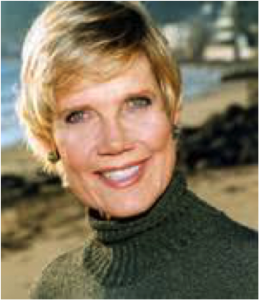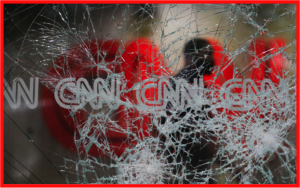By Anne Ready
The reporters are the messengers.
And when, a few years ago, #BlackLivesMatter protests over racial discrimination erupted into violence, it spared no one. Incidents impacted mainstream news reporters, freelancers, international correspondents and student journalists.
Courtesy of Brynn Anderson | AP
Messenger CNN reporter Omar Jimenez and his crew were arrested live, on television, while reporting from Minneapolis. Protestors attacked and beat cameraman Ian Smith in Pittsburgh. A Wall Street Journal reporter said the police attacked him with riot shields in New York City. Police shot rubber bullets at an NBC reporter near the White House, while protesters attacked a Fox News crew in Washington DC. In Minneapolis, where the protests originated, Reuters videographers and Germany’s DW News reporters were hit with rubber bullets while police sprayed tear gas into the crowd. Linda Tirado, a freelance photojournalist, was shot and permanently blinded in one eye.
Fuel to the Fire
President Trump added fuel to the fire, tweeting that the “lamestream media” are “truly bad people with a sick agenda.”
“By denigrating journalists so often, “commented Suzanne Nossel, chief executive of PEN America, the nonprofit organization devoted to free expression, “he has degraded respect for what journalists do and the crucial role they play in a democracy,”
And, she told media columnist Margaret Sullivan at the Washington Post, “it’s working. He’s been remarkably effective in contributing to this topsy-turvy sense that journalists are the opposition.
“Think of the campaign rallies where Donald Trump egged on the crowds in raucous chants of “CNN sucks.” Or the many times — even in the midst of the coronavirus pandemic — when he has responded to respectful questions on matters of life and death by ripping into the inquiring reporters.”
All Lives Matter
The Financial Times notes his labeling the press, the ‘enemy of the people’ and firing barbs at media ranging from The New York Times to Fox News.
Mr. Trump has urged everyone to hate the press — and apparently, many have heeded him. Press critic and media scholar Jay Rosen of New York University has identified Mr. Trump’s “brand promise” to his base as essentially, “Watch, we will put these people down for you.”
Trash talk
CBS’ Lesley Stahl reported that POTUS admitted as much to her shortly before the 2016 election. “Mr. Trump said, ‘You know why I do it? I do it to discredit you all and demean you all, so when you write negative stories about me, no one will believe you.’ ”
And it’s not just Donald Trump. The hostility stems, at least in part, from a sense that “the media” is just another elite institution that many Americans are convinced doesn’t represent their interests or share their values. “For the disenfranchised and victims of structural inequities such as racism and poverty,” explained Michael J. Socolow, an associate professor of journalism and communication in his blog, Living in a Media World, “‘the media’ can also be a pervasive and on-going part of their problem. That’s why it’s so easy for everyone to see antagonism in the distanced stance and neutrality of the independent observer. During these polarized, emotional times, everyone has to choose a side — but journalists won’t.
“This problem is amplified by the inherent structure of journalism. It is invasive and antagonistic. It asks questions. It invades privacy. It plays both naive and skeptical at the same time. Journalists know that every story has at least ‘two sides.’ Thus, by simply observing professional norms, journalists can be perceived — by law enforcement, and protestors alike — as provoking their own victimization.”


